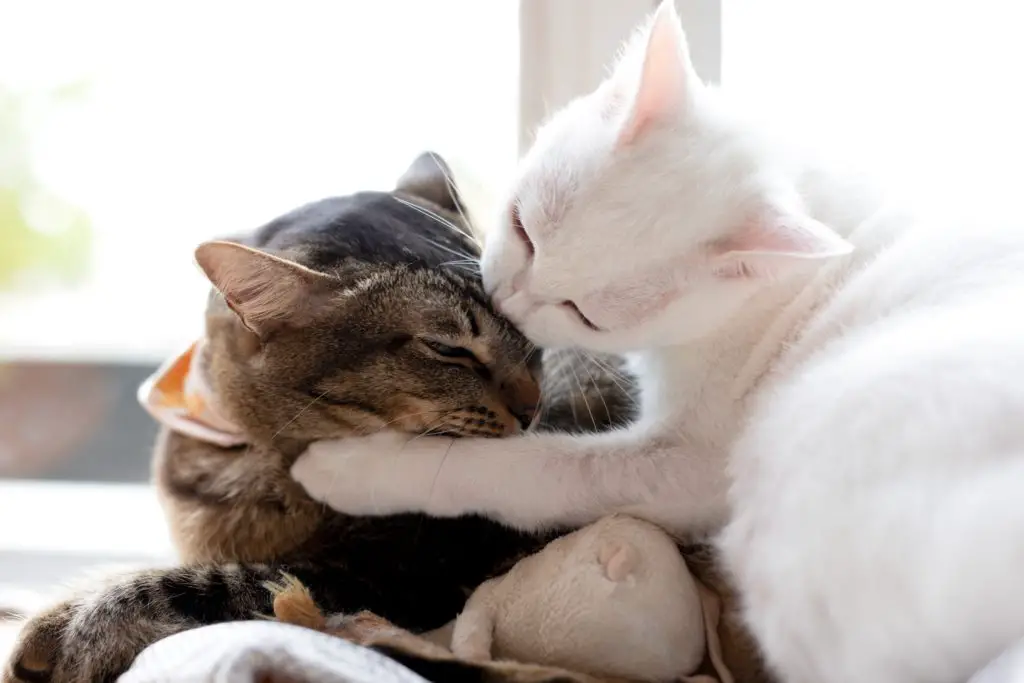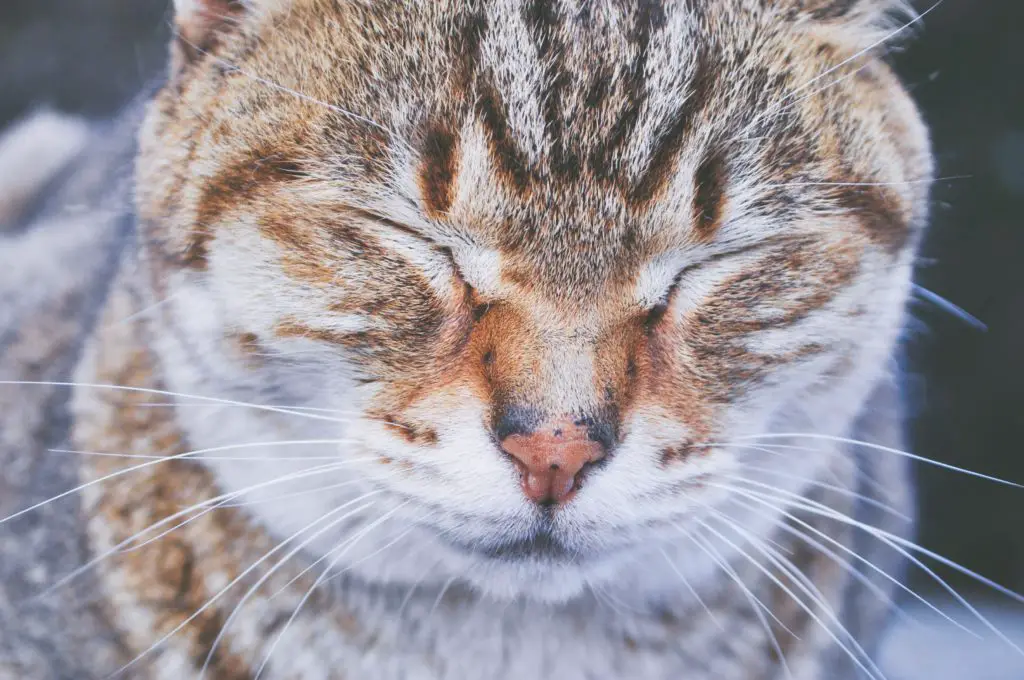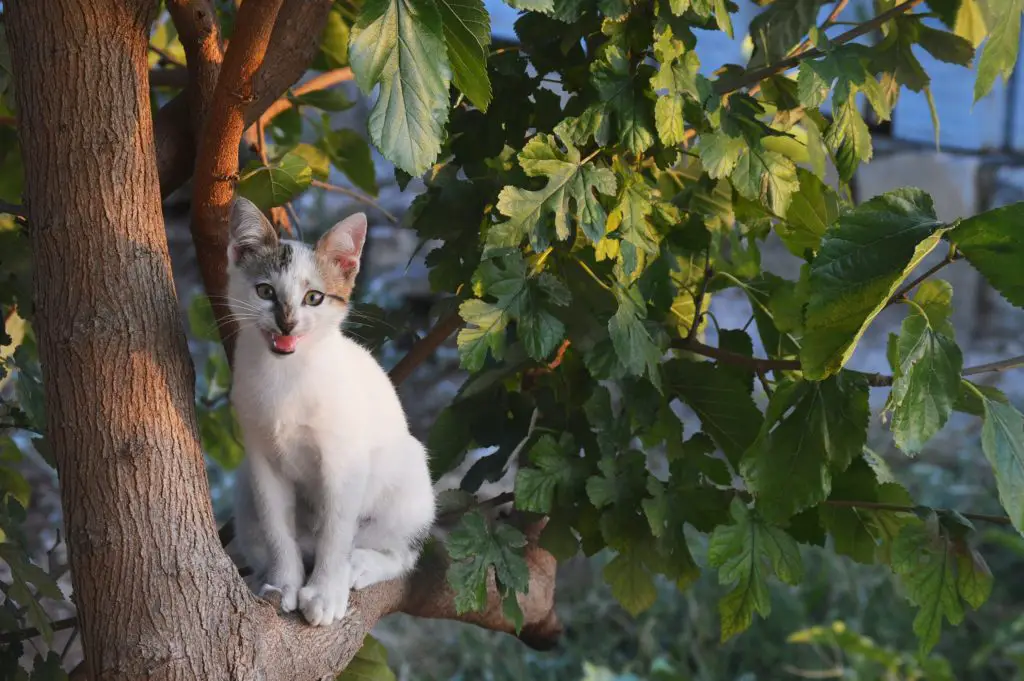When people introduce a new cat to their home, they have high hopes that the brand-new cat is going to get on with the old cat right away.
Sadly, things rarely pan out like that.
Chances are that the old cat is going to chase the new cat. Why is this?
It is likely that your old cat is chasing your new cat as an act of territorial aggression. This is because cats are highly territorial animals. They will see the new cat as an invader of their territory, and they will chase it away.
Why Is My Old Cat Chasing My New Cat?
You have to think about things from the perspective of your old cat.
For a while, your old cat has been the sole cat in your home. They rule it. Every inch of that home belongs to them.
If you introduce a new cat to the mix, then that old cat is pretty much going to be telling the new cat, “this is my territory. Leave it alone”.
Basically, that new cat is going to end up being chased away, which probably won’t be too pleasant for the new cat.
In other cases, it may be because the old cat believes that they are competing for resources with the new cat.
For example, if you serve them food at the same time, then the old cat may give chase, giving the new cat a warning to ‘not go near the food bowl’.
Of course, there is also a chance that the old cat may be trying to play with the new cat.
However, this is quite rare. Older cats tend to be more of the view that they should be left alone.
If the new cat is trying to play with the old cat, then this can also lead to a bit of a chase.
How To Get a Cat To Stop Chasing The Kitten
Well, for starters, this is going to be a long process.
You shouldn’t leave the cat and the kitten alone together until you are 100% sure that they are able to get on fine.
This is something that could easily take weeks.
Introduce The New Smell First
If it’s only been a short period of time since you’ve brought a new kitten into the house, we suggest you take its blanket or any other toy and let your resident cay smell it.
As mentioned earlier, cats are territorial animals, and need to know what is going on around the house.
By letting them get acquainted with the smell of a new kitten, you will significantly lower the risk of them having problems interacting face to face, since the old cat will think of a new kitten as a natural part of its territory.
Give Each Cat Their Own Room
Both the kitten and the cat should have their own assigned room in the house. This is where they eat. This is where their toys are. This is where the litter box is.
If you give each cat their own place where they can ‘chill’ without the other cat nearby, then this will cut out the vast majority of cases.
Over time, you can start to introduce the kitten to other rooms of the house.
Feed The Cats Separately
In some cases, the chasing could be down to the cat believing that there isn’t enough food to go around.
This is often going to be the case if you notice the cat chasing the kitten during feeding time.
We suggest that you feed the two of them in separate rooms (remember, assigned rooms!)
Slowly Introduce The Kitten To The Cat
Gently introduce the kitten to the cat. This should be a supervised interaction.
Hold the kitten and let the cat have a sniff and get familiar with it.
Over time, you can release the kitten and let them run around the cat, and perhaps play with them.
If you notice any chasing happens (aggressive chasing, not playful chasing), then tell the cat ‘No’.
The first meetings should be a few minutes at a time, and then the cats can go back to their respective rooms.
Allow The Cat To Play With The Kitten’s Toys
Some people have found that allowing the cat to play with the kitten’s toys, particularly when the kitten is there, is a good bonding exercise for the two animals.
Your goal is to get the two cats bonding, and play is a great way to bond.
You can introduce some of these toys during the ‘meeting’ sessions between the two cats.
Reward Your Cat When It Is Not Aggressive
Cats, just like dogs, can be trained.
If your cat is not being aggressive towards the kitten, then reward the cat.
Let the cat know that it is doing something positive.
You may even be able to train your cat to call off a chase once it has started.
Your best bet here is to get your cat to go to a certain room in the house when they are chasing.
If they do that, then you can reward them.
Final Thoughts
It is not uncommon for an old cat to chase a kitten.
The cat believes that the kitten is a stranger and trying to muscle in on its turf.
Luckily, the more the animals get used to one another, the less the chasing will happen.

My name is Katie, and I have had different pets at home for as long as I can remember. While I can definitely say I love all animals in general, my heart belongs to cats and dogs. I know you are supposed to choose one or the other, but I could never really decide. I’ve also owned hamsters and fish when I was a kid, and they filled my childhood with very delightful memories.





